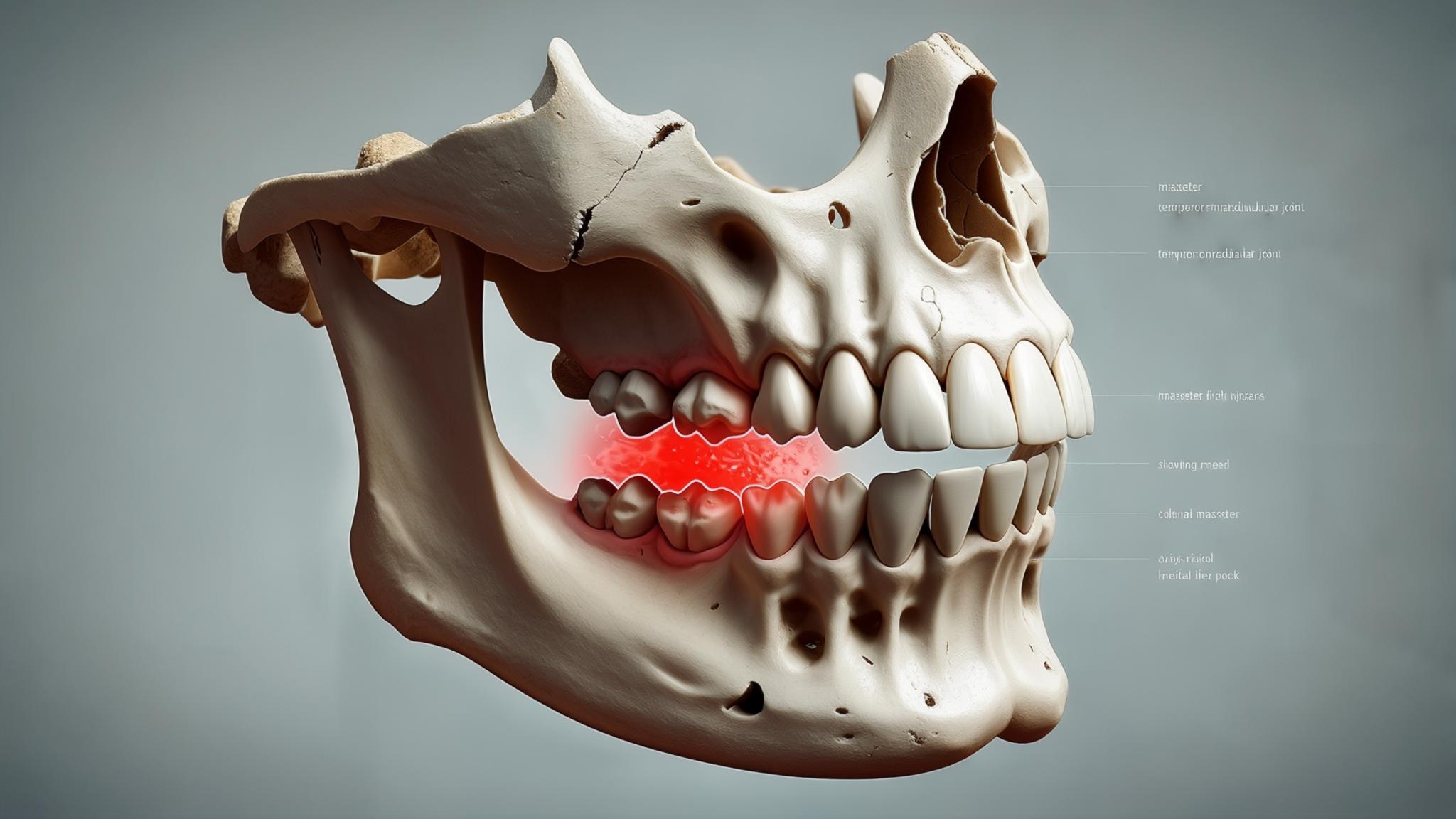Understanding Jaw Lock and Difficulty Opening the Mouth
Introduction
Imagine trying to take a bite of your favorite sandwich, only to find that your jaw won't open or move as it should. This condition, known as jaw lock or difficulty opening the mouth, can be both alarming and uncomfortable. Understanding this condition is crucial because it helps you recognize when it's time to seek professional help and prevents potential complications. In this article, we'll explore the anatomy of the jaw, possible causes of jaw lock, accompanying symptoms, and when to seek immediate assistance.
Anatomy of the Jaw
To understand jaw lock, it's essential to first grasp the basic anatomy of the jaw. The temporomandibular joint (TMJ) is a critical component, acting like a sliding hinge that connects your jawbone to your skull. This joint and its surrounding muscles allow you to chew, speak, and yawn. Under normal conditions, the jaw moves smoothly thanks to the coordination of bones, muscles, and ligaments, but any disruption can lead to problems like jaw lock.
Possible Causes of Jaw Lock or Difficulty Opening Mouth
Temporomandibular Joint Disorders (TMD)
TMD is a common cause of jaw lock. It refers to a group of conditions affecting the TMJ and the muscles controlling jaw movement. Symptoms include jaw pain, difficulty chewing, and a clicking sound when opening or closing the mouth.
Muscle Spasms
Muscle spasms can occur when the jaw muscles contract involuntarily. These spasms might be triggered by stress, excessive chewing, or even poor posture. Such spasms can significantly restrict jaw movement, making it difficult to open your mouth fully.
Trauma or Injury
Injuries like fractures or dislocations can lead to jaw lock. Accidents, sports injuries, or even a bad fall can damage the jaw, resulting in immediate and severe symptoms such as swelling and inability to move the jaw.
Dental Issues
Dental problems, including impacted teeth or a dental abscess, can affect jaw mobility. Additionally, dental procedures might temporarily cause jaw stiffness, especially if they involve prolonged mouth opening.
Arthritis
Arthritis, particularly osteoarthritis or rheumatoid arthritis, can affect the jaw joint. These conditions cause inflammation and degeneration, leading to pain and restricted movement over time.
Stress and Anxiety
Stress often manifests physically, including jaw clenching or teeth grinding, known as bruxism. This can lead to muscle fatigue and discomfort, contributing to jaw lock.
Symptoms Accompanying Jaw Lock
Jaw lock often comes with other symptoms such as:
- Pain in the jaw, face, or ears
- Clicking or popping sounds when moving the jaw
- Limited range of motion
- Swelling or tenderness around the jaw
- Headaches or migraines
When to Act Quickly
Certain signs indicate the need for immediate medical attention:
- Severe pain or swelling that doesn't subside
- Inability to close or open the mouth
- Signs of infection, such as fever or pus
- Symptoms of a fracture or dislocation
Timely intervention is crucial to prevent chronic issues and ensure proper healing.
First Aid Measures
If you experience jaw lock, here are some initial steps you can take at home:
- Apply ice to the affected area to reduce swelling.
- Use over-the-counter pain relief options like ibuprofen.
However, if symptoms persist, it's important to contact a healthcare provider for a thorough evaluation.
Conclusion
Understanding jaw lock and its potential causes can help you respond effectively and seek timely care. Awareness and prompt action are key to preventing long-term issues. If you experience persistent symptoms, don't hesitate to seek professional advice.

